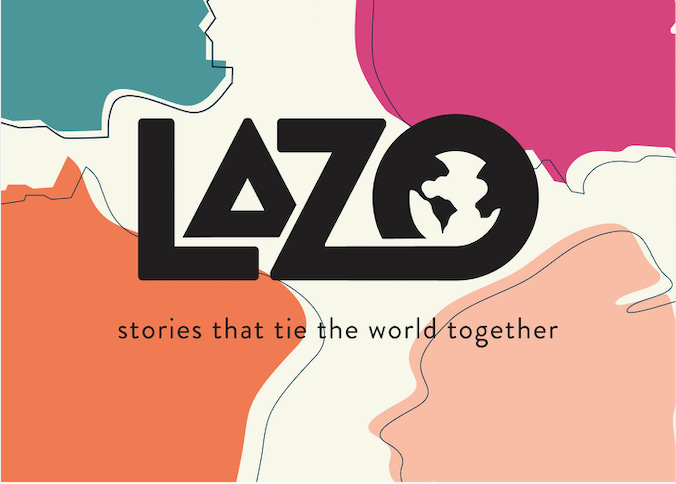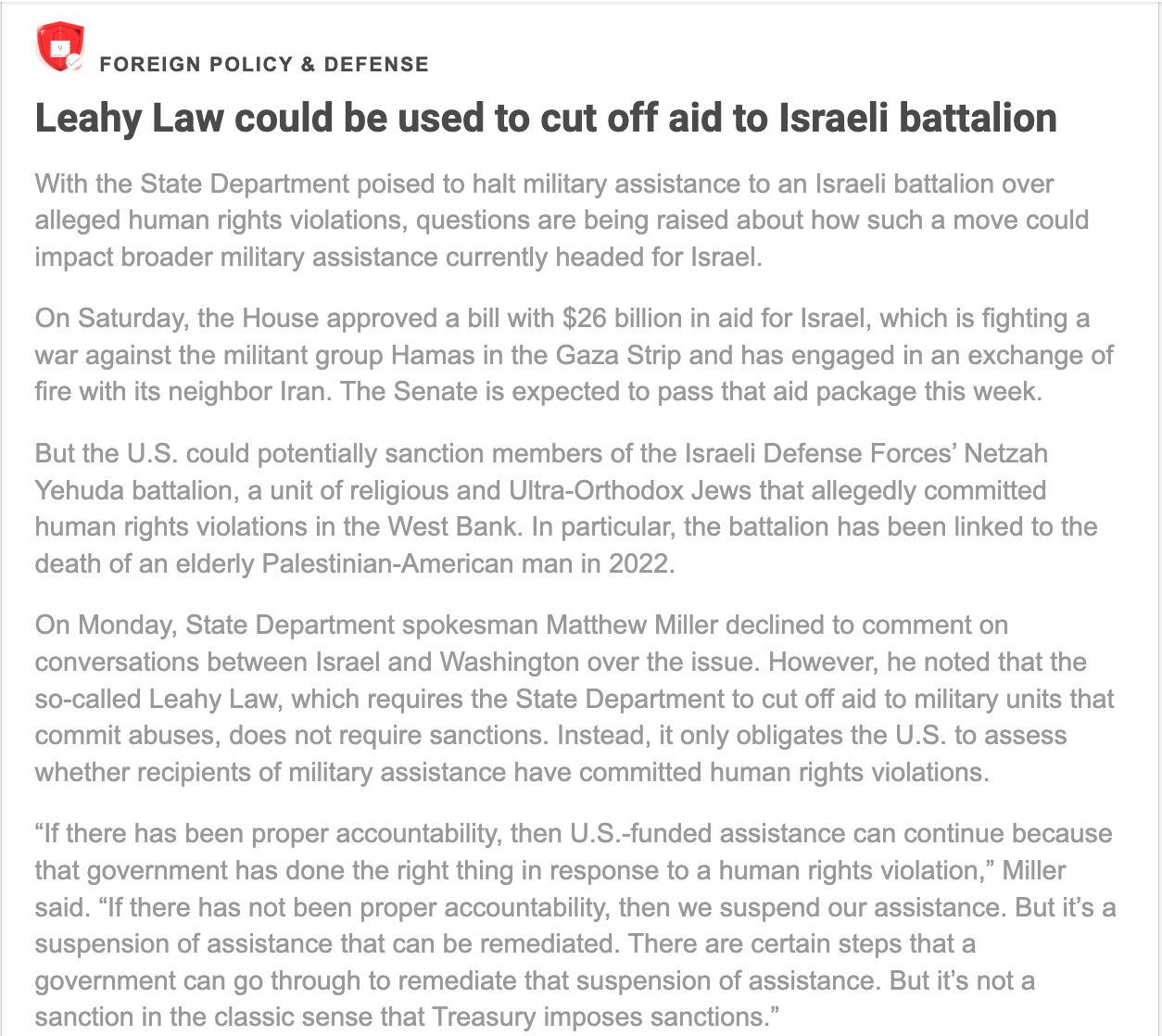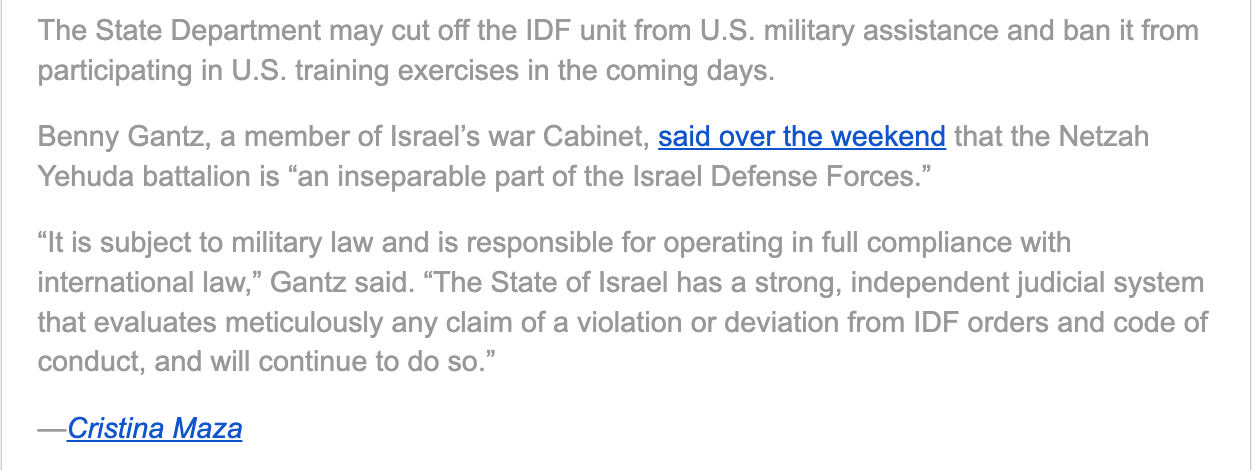A quick programming note: I will be traveling pretty consistently between April 30 and June 13, and this newsletter will be more sporadic. I’ll still try to bring you an edition every week, but I might skip a few, or the content might be slightly different. I’m going to visit family and friends, attend a conference, do some reporting, and participate in a fellowship, so it’s going to be a packed start to the summer. More details on all of that soon.
In other news, this week for Lazo Magazine, Ailani Roldan of the Hunger Project wrote about Ethiopian women combatting malnutrition in their communities. You can read that here.
Lazo Magazine is now on social media. You can follow along on Facebook, Twitter, LinkedIn, and Instagram. And if you can donate to Lazo Magazine or become a paid subscriber to this newsletter, that’s always appreciated.
What I’m writing:
• Now that Congress has finally approved foreign aid, I have dug into how quickly military assistance can reach the frontline and how it will impact life and the war effort in Ukraine. The Pentagon said aid could be delivered "within days." This story is unlocked and free to read.
My weekly news blurbs:
What I’m reading:
• Novaya Gazeta reports that Chechen leader Ramzan Kadyrov was diagnosed with pancreatic necrosis, a terminal illness that has prompted the Kremlin to look for his successor.
• Ukraine has begun using long-range ballistic missiles known as ATACAMS that the United States secretly provided, the BBC reports.
• Armenian Prime Minister Nikola Pashinyan is defending his decision to hand control of four villages over to Azerbaijan to avoid a war with Armenia’s heavily armed neighbor. The Guardian has the story.
• Azerbaijani President Ilham Aliyev said a peace deal with Armenia was closer than ever, as teams from both countries began demarcating the border to end decades of territorial disputes and clashes. France 24 has the story.
• Armenians fear new war with Azerbaijan despite talk of peace, the BBC reports.
• Armenian Prime Minister Nikola Pashinyan has faced days of protests over his decision to hand four villages over to Azerbaijan, EurasiaNet reports.
• Voters in North Macedonia headed to the polls for the first round of presidential elections, to be followed by a second round on May 8. Šejla Ahmatović reports for Politico Europe that journalists accuse the country’s ruling party and opposition of banding together to restrict press freedom.
• In Slovakia, Robert Fico’s government approved a controversial proposal to scrap Slovakia’s public broadcaster RTVS and replace it with what critics fear will be a mouthpiece for the government. The Guardian has the story.
• Greece’s ruling party made an especially contentious choice to run in June’s European elections: Fredi Beleri, the jailed mayor-elect of the town of Himarë on the Albanian Riviera, Politico Europe reports. Beleri’s imprisonment is a cause of the célèbre in Greece, and tensions between Athens and Tirana over his detention now threaten Albania’s push to join the EU.
• Spain’s prime minister said he was considering resigning after a judge opened an investigation into whether his wife abused her position to help friends win public contracts.
• Member of the European Parliament Maximilian Krah, the far-right Alternative for Germany’s top candidate for the June European Parliament election, is under pressure from his party leadership to end his campaign. It comes after the bombshell arrest of his aide, who stands accused of spying for China, Politico Europe reports.
• A German right-wing MEP candidate, Petr Bystron's biography has many holes and inconsistencies from when he migrated to Germany from Czechoslovakia in 1988 while receiving asylum protection. The JournalismFund Europe has the story.
• Britain’s parliament passed a law allowing the controversial deportation of asylum seekers to Rwanda, the BBC reports. The plan has been subject to fierce criticism, and the U.K. Supreme Court ruled last November that the policy was unlawful.
• Members of the European Parliament voted against Gibraltar’s removal from the European Union’s dirty money watchlist, arguing that “important and recent evidence” suggests the British overseas territory could be facilitating the evasion of sanctions against Russia, Politico Europe reports.
• A top Hamas official said the group would lay down its weapons if a two-state solution is implemented. The official told The Associated Press the group would agree to a ceasefire of five years or more with Israel if an independent Palestinian state is established along pre-1967 borders.
• Israel has yet to provide evidence that the UN Agency for Palestinian Refugees (UNRWA) has terrorist links, according to an independent review led by the former French foreign minister Catherine Colonna. The Guardian has the story.
• One-third of those killed in Gaza so far have been women, according to a new UN report.
• Dozens more bodies were found in a mass grave within the Nasser Hospital in Khan Younis in Gaza, CNN reports. Colonel Yamen Abu Suleiman, the director of Civil Defense in Khan Younis, previously alleged some bodies were found with hands and feet tied, and “there were signs of field executions.”
• Maldives president Mohamed Muizzu’s party won a landslide victory in a parliamentary election, cementing his grip on power, the BBC reports. Muizzu, widely seen as pro-China, seeks to reduce India’s long-standing influence in his country.
• A Human Rights Watch investigation found that more than 220 civilians, including at least 56 children, were massacred by Burkina Faso’s military on February 25 this year.
You can write to me for any reason: c.maza@protonmail.com








